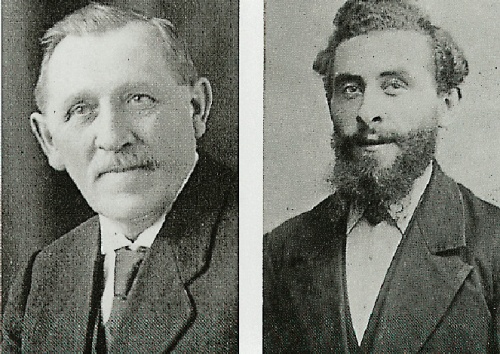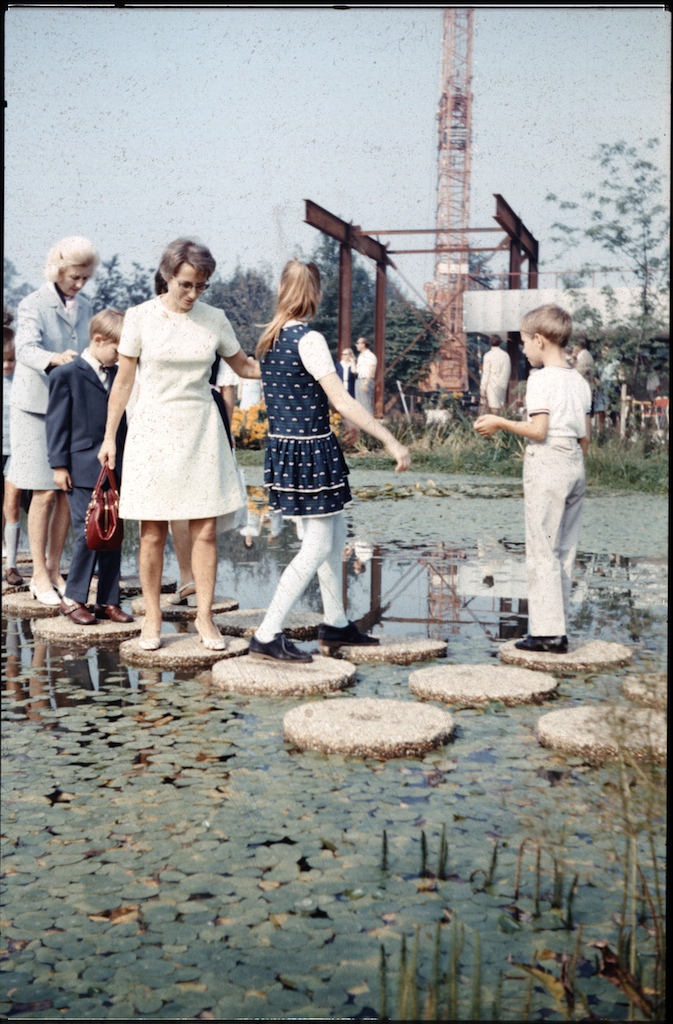|
Oelde
Oelde () is a town in the district of Warendorf, in North Rhine-Westphalia, Germany. It is located near Beckum. Geography Division of the town Oelde consists of 5 districts: * Oelde * Stromberg * Lette * Sünninghausen * Kirchspiel (with farming communities) ** Keitlinghausen ** Ahmenhorst ** Menninghausen Neighbouring places The neighboring municipalities and cities are clockwise, starting in the north: * Beelen * Herzebrock-Clarholz * Rheda-Wiedenbrück * Langenberg * Wadersloh * Beckum * Ennigerloh International relations Oelde is twinned with: * Niesky (Saxony, Germany) History The name Oelde was first mentioned in a document around 890 as "Ulithi im Dreingau" in the Urbar of the Werden monastery. In 1457 a conflagration destroyed the city. In 1498, after the reconstruction, Oelde had 750 citizens. Another fire raged in 1605 and destroyed a total of 18 houses, barns and the town hall. In 1939, Oelde was given its own exit when the motorway A 2 was built. ... [...More Info...] [...Related Items...] OR: [Wikipedia] [Google] [Baidu] |
Oelde Bahnhof
Oelde () is a town in the district of Warendorf (district), Warendorf, in North Rhine-Westphalia, Germany. It is located near Beckum, Germany, Beckum. Geography Division of the town Oelde consists of 5 districts: * Oelde * Stromberg * Lette * Sünninghausen * Kirchspiel (with farming communities) ** Keitlinghausen ** Ahmenhorst ** Menninghausen Neighbouring places The neighboring municipalities and cities are clockwise, starting in the north: * Beelen * Herzebrock-Clarholz * Rheda-Wiedenbrück * Langenberg (Westphalia), Langenberg * Wadersloh * Beckum, Germany, Beckum * Ennigerloh International relations Oelde is town twinning, twinned with: * Niesky (Saxony, Germany) History The name Oelde was first mentioned in a document around 890 as "Ulithi im Dreingau" in the Urbar of the Werden Abbey, Werden monastery. In 1457 a conflagration destroyed the city. In 1498, after the reconstruction, Oelde had 750 citizens. Another fire raged in 1605 and destroyed a total of 18 houses ... [...More Info...] [...Related Items...] OR: [Wikipedia] [Google] [Baidu] |
Oelde Station
Oelde station is a passenger station in the Westphalian town of Oelde in the German state of North Rhine-Westphalia. It lies on the Hamm–Minden railway, one of the most heavily trafficked lines in Germany. The station is served by an hourly Regional-Express service, the ''Rhein-Weser-Express'' (RE 6) on the Cologne–Düsseldorf–Dortmund–Bielefeld–Minden route and an hourly Regionalbahn service, the '' Ems-Börde-Bahn'' (RB 69) on the Münster–Hamm–Bielefeld route, meaning that trains run approximately every 30 minutes in both directions. Both lines were previously operated by DB Regio NRW. As of December 2008 the RB 69 service has been operated by the Hamm-based eurobahn. Services In passenger transport the station is served by several Regional-Express In Germany, Luxembourg and Austria, the Regional-Express (RE, or in Austria: REX) is a type of regional train. It is similar to a semi-fast train, with average speed at about 70–90 km/h (top speed often 1 ... [...More Info...] [...Related Items...] OR: [Wikipedia] [Google] [Baidu] |
GEA Westfalia Separator
GEA Westfalia Separator Group GmbH with head office in Oelde, Westphalia is a German manufacturer of separators and decanters which is part of the GEA Group. The company develops procedures and processes for the mechanical clarification and separation of liquids for the food industry, chemicals, pharmaceuticals, biotechnology, energy, shipping and environmental technology. History 1893–1900On 1. September 1893 the brothers-in-law Franz Ramesohl and Franz Schmidt opened up a workshop under the name of ''Ramesohl & Schmidt oHG'' in Oelde. With a staff comprising two lathe operators and three mechanics, they started the production of milk separators which cost between 200 and 320 marks. In the year following the company foundation, the number of employees rose to 20 and the production facilities were expanded by a further building. In 1897 annual production was 2000 centrifuges, with 60 employees. The company was transformed into an Aktiengesellschaft in 1899 based on a sharehol ... [...More Info...] [...Related Items...] OR: [Wikipedia] [Google] [Baidu] |
Rhein-Weser-Express
The Rhein-Weser-Express (RE 6) is a Regional-Express service route in the German state of North Rhine-Westphalia, connecting some of the most important cities in Westphalia (among others Minden, Bielefeld and Hamm) with the Ruhr (especially Dortmund, Bochum, Essen, Duisburg, Düsseldorf, Neuss and Cologne). Cologne, Neuss, Düsseldorf and Duisburg lie on the Rhine while Minden lies on the Weser. Until the timetable change in December 2016, this services was called the ''Westfalen-Express'' and ended in Düsseldorf Hauptbahnhof. History Until the timetable revision of 2002, the NRW-Express (RE 1) operated with five, and sometimes up to eight, double-deck carriages from Aachen to Bielefeld. In 2002 services were extended to Minden and at the same time the service was split into two routes. The ''Westfalen-Express'' was established, taking over the Hamm–Bielefeld–Minden section and extending to Düsseldorf. This change was intended in particular to improve the timeliness of th ... [...More Info...] [...Related Items...] OR: [Wikipedia] [Google] [Baidu] |
Hamm–Minden Railway
The Hamm–Minden Railway is an important and historically significant railway in Germany. It is completely quadruple track. It is a major axis for long distance passenger and freight trains between the Ruhr and the north and east of Germany. It is the part of the trunk line built by the Cologne-Minden Railway Company (German, old spelling: ''Cöln-Mindener Eisenbahn-Gesellschaft'', ''CME'') from Köln Deutz to Minden. It was opened in 1847 and has been modernized and developed several times since then. History The route was opened on 15 October 1847 by the Cologne-Minden Railway Company (CME) as the last part of its trunk line, extending the line previously completed from Deutz (near Cologne) to Düsseldorf, Duisburg, Dortmund and Hamm. It connected with the Royal Hanoverian State Railways’ Hanover–Minden line, which was opened the same day. The CME's line was originally laid with two tracks, although some sections were put into operation before the second trac ... [...More Info...] [...Related Items...] OR: [Wikipedia] [Google] [Baidu] |
Lette Vitus2
Lette can refer to: ;Geography *Lette (Coesfeld), a part of Coesfeld, North Rhine-Westphalia, Germany *Lette (Oelde), a part of Oelde, North Rhine-Westphalia, Germany * Lette, New South Wales, a locality in New South Wales, Australia ;People *Henry Lette (1829–1892), Australian cricketer *Kathy Lette Kathryn Marie Lette (born 11 November 1958) is an Australian-British author whose works have been best-sellers. Early life Lette was born on 11 November 1958 in Sydney's southern suburbs. She appeared in ''The Sydney Morning Herald'' of 20 Au ... (born 1958), Australian author * Virginia Lette, Australian radio and television presenter {{Disambig ... [...More Info...] [...Related Items...] OR: [Wikipedia] [Google] [Baidu] |
Landesgartenschau
A ''Regional Garden Show'' (''Landesgartenschau'') is an exhibition on horticulture that takes place on a regular basis in several German and Austrian states. In Germany, a state horticultural show at the state level is the smaller counterpart to the Bundesgartenschau and the International Horticultural Show, in Austria there is no counterpart so far. Germany History In the federal states of Baden-Württemberg and Bavaria state garden shows have been held since 1980. In North Rhine-Westphalia there was already a first state garden show in 1970, other German states adopted the model later. In the Austrian federal states Upper Austria and Lower Austria, too, state garden shows have been taking place for several years in alternating two-year cycles. In 1980, the first cross-border national horticultural show in Germany took place in Ulm/Neu-Ulm (Baden-Württemberg/Bavaria). Objectives and financing The garden shows are intended to improve the quality of life and the ecologi ... [...More Info...] [...Related Items...] OR: [Wikipedia] [Google] [Baidu] |
Warendorf (district)
Warendorf () is a ''Kreis'' (district) in the northern part of North Rhine-Westphalia, Germany. Neighboring districts are Steinfurt, Osnabrück (district), Gütersloh, Soest, district-free city Hamm, Coesfeld and the district-free city Münster. History In medieval times the region was part of the Prince-Bishopric of Münster. When it became part of the Prussian Province of Westphalia, the new government in 1816 created the districts of Warendorf and Beckum. In 1975 these two districts were merged to form today's district. Geography The district is located east of the city of Münster. The Ems river runs through the district from east to west. The Lippe River forms part of the southern border of the district. Coat of arms The coat of arms is a combination of the two coats of the precursor districts Warendorf and Beckum. The two sun roses are taken from the Warendorf coat of arms, which took it from the family coat of arms of the Vogt family in Warendorpe. The wavy line comes fro ... [...More Info...] [...Related Items...] OR: [Wikipedia] [Google] [Baidu] |
Rheda-Wiedenbrück
Rheda-Wiedenbrück (; Westphalian: ''Raie-Wienbrügge'') is a city in the district of Gütersloh, in North Rhine-Westphalia, Germany. Geography The twin community lies within the valley of the river Ems in the Westphalian Lowland south of the Teutoburg Forest, which is about 30 km away. The formerly independent towns of Rheda and Wiedenbrück are separated by the Federal Highway 2 which does not, however, form the historic border between the two districts. The Ems river runs through the city. The nearest major cities are Gütersloh (about 11 km), Bielefeld and Paderborn around 35 km away, and Hamm about 55 km away. The river enters from the southeast into an urban area. Close to the public pool in Wiedenbrück, an artificial side arm branches off to the north of the river Ems. The Ems and the artificial branch are flowing around the old historic Wiedenbrück city centre and come together again behind the Ems lake at the height of the Wiedenbrück High Scho ... [...More Info...] [...Related Items...] OR: [Wikipedia] [Google] [Baidu] |
Herzebrock-Clarholz
Herzebrock-Clarholz is a town in the district of Gütersloh in the state of North Rhine-Westphalia, Germany. It is located approximately 10 km west of Gütersloh. Adjacent towns *Bredeck *Harsewinkel *Gütersloh *Rheda-Wiedenbrück *Oelde *Beelen Twinning Herzebrock-Clarholz is twinned with: * Steenwijkerland, Netherlands *Le Chambon-Feugerolles, France People * Kaspar von Zumbusch (1830–1915), sculptor * Diana Amft (born 1975), actress * Carl Miele Carl Miele (25 July 1869, in Herzebrock – 24 December 1938, in Gütersloh) was a German businessman. He was a company co-founder of the German company Miele Miele ( ; ) is a German manufacturer of high-end domestic appliances and commer ... (1869-1938), German entrepreneur References [...More Info...] [...Related Items...] OR: [Wikipedia] [Google] [Baidu] |
Langenberg (Westphalia)
Langenberg () is a municipality in the district of Gütersloh in the state of North Rhine-Westphalia, Germany. It is located in the Teutoburg Forest, approx. 15 km south-west of Gütersloh and 30 km west of Paderborn Paderborn (; Westphalian: ''Patterbuorn'', also ''Paterboärn'') is a city in eastern North Rhine-Westphalia, Germany, capital of the Paderborn district. The name of the city derives from the river Pader and ''Born'', an old German term for t .... References [...More Info...] [...Related Items...] OR: [Wikipedia] [Google] [Baidu] |
Heinrich Lübke
Karl Heinrich Lübke (; 14 October 1894 – 6 April 1972) was a German politician, who served as president of West Germany from 1959 to 1969. He suffered from deteriorating health towards the end of his career and is known for a series of embarrassing incidents that may have resulted from his health issues. Lübke resigned three months before the scheduled end of his second term amid a scandal as to his involvement with the Nazi regime during World War II. Early life Born in Enkhausen, Westphalia, Lübke had a very humble upbringing. He was the son of a shoemaker and farmer from the Sauerland, and was a surveyor by training.Die Zeit"Der Fall Lübke" (''The Lübke Case'')(2007, in German) He volunteered for service in World War I in August 1914. He completed his basic training first with the Westphalian Foot Artillery Regiment No.7, with which he was then deployed on the Eastern and Western Fronts. In 1916 he was promoted to ''Vizefeldwebel''. After a gas attack, he wa ... [...More Info...] [...Related Items...] OR: [Wikipedia] [Google] [Baidu] |



